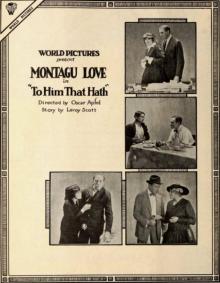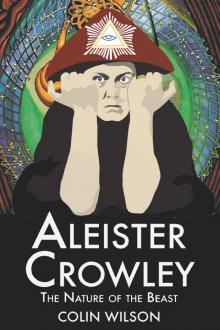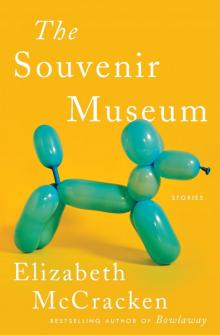To Him That Hath


Author: Leroy Scott
Category: Literature
Published: 2012
Series:
View: 585
Read OnlineThe Reverend Philip Morton, head of St. Christopher's Mission, had often said that, in event of death or serious accident, he wished David Aldrich to be placed in charge of his personal affairs; so when at ten o'clock of a September morning the janitor, at order of the frightened housekeeper, broke into the bath-room and found Morton's body lying white and dead in the tub, the housekeeper's first clear thought was of a telegram to David.The message came to David while he was doggedly working over a novel that had just come back from a third publisher. He glanced at the telegram, then his tall figure sank back into his chair and he stared at the yellow sheet. Never before had Death struck him so heavy a blow. The wound of his mother's death had been dealt in quick-healing childhood; and though his father, a Western mining engineer, had died but seven years before, David had known him hardly otherwise than as a remotely placed giver of an allowance. Morton had for years been his best friend—latterly almost his only friend. For a space the blow rendered him stupid; then the agony of his personal loss entered him, and wrung him; and then in beside his personal sorrow there crept a sense of the appalling loss of the people about St. Christopher's.But there was no time for inactive grief. He quickly threw a black suit and a week's linen into a travelling bag, and within an hour after the New York train pulled out of his New Jersey suburb, he paused across the street from St. Christopher's Mission—a chapel of red brick, with a short spire rising above the tenements' flat heads, and adjoining it a four-story club-house in whose windows greened forth boxes of ivy and geraniums. The doors of the chapel stood wide, as they always did for whoso desired to rest or pray, but the doors of the club-house, usually open, were closed against the casual visitor by the ribboned seal of death.David held his eyes on the fourth-story windows, behind which he knew his friend lay. Minutes passed before he could cross the street and ring the bell. He was admitted into the large hallway, cut with numerous doors leading into club-rooms, and hung with prints of Raphaels, Murillos, Angelicos and other holy master-painters. Overwhelmed though all his senses were, he was at once struck by the emptiness, the silence, of the great house—by its strange childlessness.
 Aleister Crowley
Aleister Crowley When Dogs Cry
When Dogs Cry The House I Loved
The House I Loved The 8th Confession
The 8th Confession In Search of Adam
In Search of Adam Arabian Nights and Days
Arabian Nights and Days The Souvenir Museum
The Souvenir Museum Rescuing Christmas
Rescuing Christmas